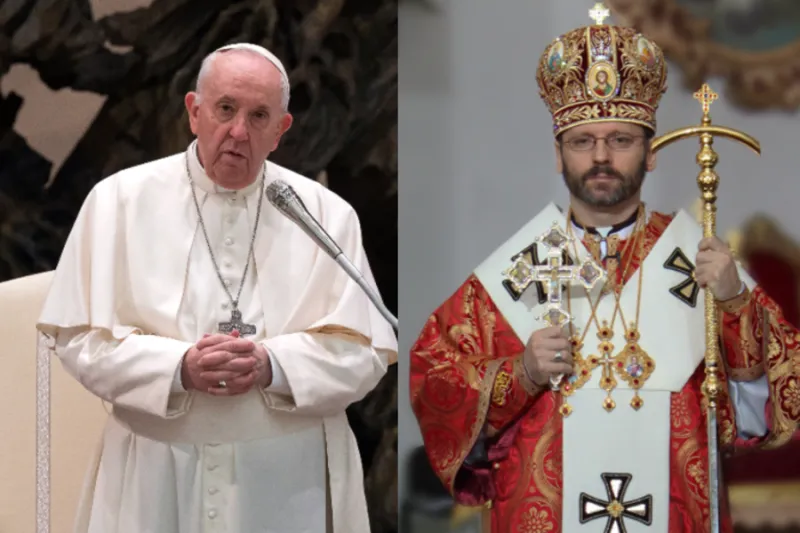
Rome, Italy, Feb 25, 2022 / 13:50 pm (CNA).
Pope Francis told the leader of the Ukrainian Greek Catholic Church on Friday that he would do everything he can to help end the Ukraine conflict.
The pope called Major Archbishop Sviatoslav Shevchuk, who is based in the Ukrainian capital Kyiv, in the late afternoon on Feb. 25, according to the Secretariat of the Major Archbishop in Rome.
“During the phone call, Pope Francis was concerned about the situation in the city of Kyiv and in general throughout Ukraine. Pope Francis told His Beatitude: ‘I will do everything I can,’” the secretariat said.
Shevchuk had been due to travel to the Italian city of Florence to take part in a meeting of bishops from countries surrounding the Mediterranean Sea. But after Russian President Vladimir Putin ordered troops into Ukraine on Feb. 24, the major archbishop canceled the trip to remain with his flock.
As Russian soldiers advanced on Kyiv, Shevchuk took cover with others in an air-raid shelter under the Cathedral of the Resurrection in Kyiv, reported the website Il Sismografo.
During the phone call, the pope reportedly asked about priests and bishops in areas where there is heavy fighting between Ukrainian and Russian forces.
He thanked the Ukrainian Greek Catholic Church, the largest of the 23 Eastern Catholic Churches in full communion with Rome, for its closeness to the Ukrainian people.
#PrayTogether #Ukraine pic.twitter.com/WUyGuMLYzG
— Pope Francis (@Pontifex) February 25, 2022
“In particular, the pope praised the decision to remain among the people and at the service of the most needy, even making available the basement of the Greek Catholic Cathedral of the Resurrection in Kyiv to give shelter to people,” the secretariat said.
Pope Francis visited the Russian Embassy to the Holy See on Friday morning to express his concern at the war.
He has called for a day of prayer and fasting for peace on Ash Wednesday, March 2.
The pope assured Shevchuk of his closeness, support, and prayers for Ukraine. He also sent his blessing to the suffering people of Ukraine.
If you value the news and views Catholic World Report provides, please consider donating to support our efforts. Your contribution will help us continue to make CWR available to all readers worldwide for free, without a subscription. Thank you for your generosity!
Click here for more information on donating to CWR. Click here to sign up for our newsletter.






Leave a Reply